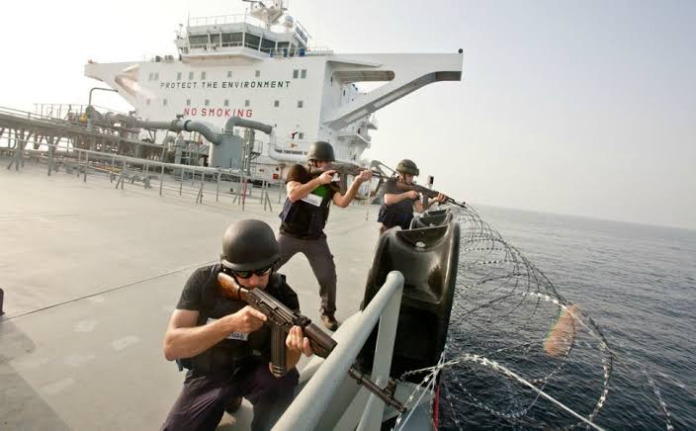
The IMO has within its mandate to make trade and travel by sea as safe and secure as possible. To manage & reduce any warnings with the potential to balance maritime security the Organization develops appropriate regulations & instructions through the Maritime Safety Committee (MSC) & with input from the Organization’s Facilitation Committee (FAL) & Legal Committee (LEG).
International Ship and Port Facility Security (ISPS) Code
The IMO’s International Convention for the Safety of Life at the Sea (SOLAS) 1974, comprise facilities accepted to address maritime security matters. Within the SOLAS’s chapter XI-2 on Special Measures to enhance maritime security is the International Ship & Port Facility Security (ISPS) Code, which is a obligatory instrument for all countries Party to the Convention. The motive of the ISPS Code is to assure that the appropriate ocean going ships & port facilities of the IMO Member States are carrying out the highest possible standards of security.
Divided into two parts, the ISPS code consists of complete security related conditions for the Governments, port authorities & shipping companies in obligatory Part A, and a series of recommendations on how to meet those requirements in a non obligatory Part B.
The Organization, through its maritime security capacity building and technical cooperation programme, conducts various national and regional activities, to ensure that the ISPS Code is implemented effectively by Member States.
Piracy and armed robbery against ships
The threat constituted by piracy & armed robbery against the ships has been on the IMO’s plan since the early 1980s. In the late 1990s and the early 2000s the focus was on the South China Sea and the Straits of Malacca and Singapore. Recently, since the year 2005, IMO has concentrated on the piracy off the coast of Somalia, in the Gulf of Aden & the wider Indian Ocean, & is currently enforcing a method for improving maritime security in West & Central Africa, in line with the region’s maritime security treaty. The Organization, with support & assistance from the shipping industry, has through the years developed & accepted a number of anti piracy policies, which have contributed towards the reduction of the negative impact created by piracy worldwide. Information concerning acts of piracy & armed robbery against the ships is publicly available in IMO’s Piracy & Armed Robbery module within the Organization’s Global Integrated Shipping Information System(GISIS).
Additionally, IMO provides support, to the member States trying to form their own national or regional policies to address the threat of piracy, armed robbery against the ships & other illegal maritime activities, if & when requested. This was the case of the Code of Conduct concerning the Repression of Piracy and Armed Robbery against Ships in the Western Indian Ocean and the Gulf of Aden (Djibouti Code of Conduct), agreed between countries in and around the western Indian Ocean and the case of the Code of Conduct regarding the suppression of piracy, armed robbery against the ships, & illegal maritime activity in west & central Africa in the Gulf of Guinea region of West Africa.
IMO guidance and best management practices
IMO has accepted suitable guidance focused at addressing maritime security, as well as piracy & armed robbery against the ships. For piracy & armed robbery, this consists of guidance to Governments, shipowners & ship operators, ship masters & crews on averting & repressing acts of piracy & armed robbery against the ships; investigation of offences & the use of armed personnel on board ships. Best Management Practices (BMP), which were formed by the shipping industry, define the suitable policies to be used when replying to acts of piracy & armed robbery against the ships in the particular regions. The IMO supports the Best Management Practices, which have been disseminated publicly by the Organization.
Armed security on board ships
IMO does not take a stance on the transportation of arms on board the ships. It is the responsibility of the every flag states & coastal states to decide if the use of Privately Contracted Armed Security Personnel (PCASP) is suitable, legal & under what conditions. The Organization has issued recommendations to flag, port & coastal States; as well as to the shipowners, ship operators & ship masters on the use of PCASP on board ships in the High Risk zone of the Western Indian Ocean & the Gulf of Aden, additionally, to advise for private maritime security companies.
Cyber security
Recognizing that a ship’s onboard information technology and operational technology systems can be hacked just as easily as systems ashore, and that such security breaches have the potential to do significant damage to the safety & security of ships, ports, marine facilities of the maritime transportation system, IMO has taken the advantage to raise knowledge across the industry on how to tackle risks by promoting a maritime cyber risk management approach. The overall motive is to support safe & secure shipping, which is operationally tough to the cyber risks.
Counter-terrorism
In order to defend a organized response to counter terrorism, the IMO is an active contributor in some of the work and activities managed under the UN Security Council Counter Terrorism Committee’s Executive Directorate & the UN General Assembly’s Counter Terrorism enactment task Force, with the joint country opinion visits, capacity building coordination & exchange of policy developments with other UN and partner entities involved in, among others, Border Management and Law Enforcement.
SUA Treaties and unlawful acts
IMO’s SUA Treaties were accepted in the year 1988 & go through a complete revision in 2005. The SUA Treaties provide the international legal framework which ensures that appropriate action is taken against persons committing unlawful acts against ships (and fixed platforms on the continental shelf). These unlawful acts listed in the treaties include the seizure of ships by force; acts of violence against persons on board ships; and the placing of devices on board a ship which are probable to destroy it.
Stowaways
As explained by the Convention on the facilitation of International Maritime Traffic, 1965, as amended, (FAL Convention), a stowaway is “A person who is secreted on the ship, or in the cargo which is later loaded on the ship, without the permission of the shipowner or the Master & who is found on board the ship after it has departed from the port, or in the cargo while unloading it in the port of arrival, & is reported as a stowaway by the master to the relevant administration”.
Drug smuggling
The IMO’s MSC & Facilitation Committee(FAL) work in close collaboration on matters connected to the prevention & repression of drug smuggling on ships involved in the international maritime traffic.
On 27 November 1997 the Organization adopted Resolution A.872(20), which contained Guidelines for the Prevention and Suppression of the Smuggling of Drugs, Psychotropic Substances and Precursor Chemicals on Ships engaged in International Maritime Traffic. That Assembly resolution was subsequently revoked and replaced by the Revised Guidelines for the Prevention and Suppression of the Smuggling of Drugs, Psychotropic Substances and Precursor Chemicals on Ships engaged in International Maritime Traffic. The revised recommendations were accepted by MSC through resolution MSC.228(82), on 7th Dec. 2006; & by FAL through resolution FAL.9(34), on 30th March 2007.
Capacity building – Western Indian Ocean and the Gulf of Aden
In the year 2009, the IMO summon & promote the”Djibouti meeting”, which led to the acceptance of the Djibouti Code of Conduct (DCoC), by countries in & around the Western Indian Ocean & the Gulf of Aden. DCoC was accepted to address the then-growing problem of piracy off the coast of Somalia.
With the IMO Djibouti Code Trust Fund, several projects & activities have been planned, organized & excuted by the IMO Secretariat’s Project Implementation Unit, to enhance regional capacity to counter piracy by promoting and enhancing regional cooperation and coordination, based on four pillars: Training, Capacity Building, Legal and Information Sharing.




